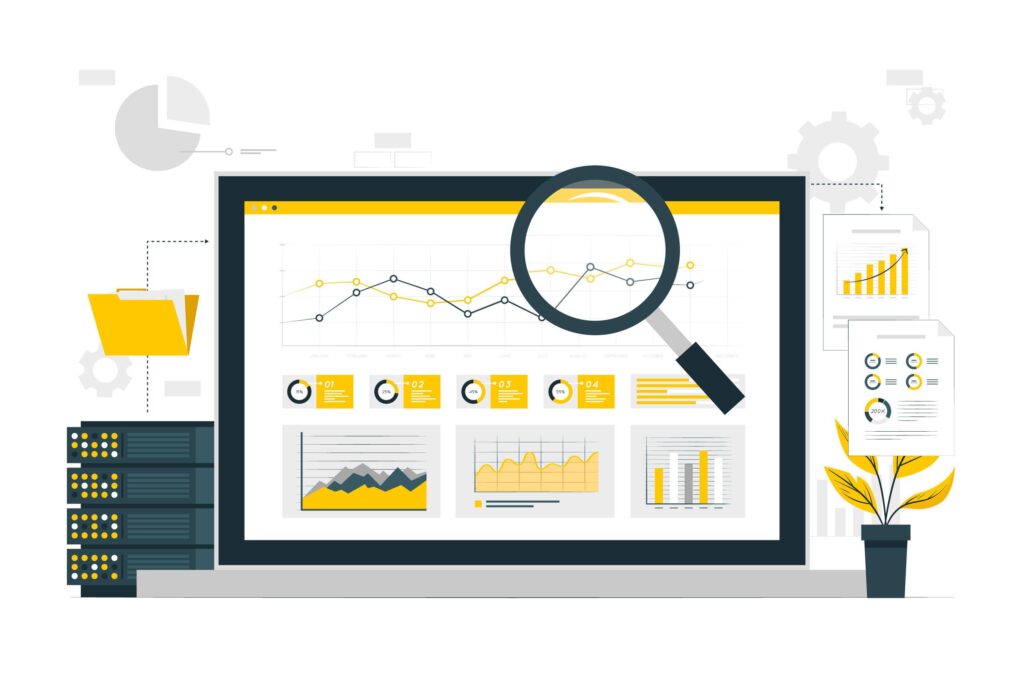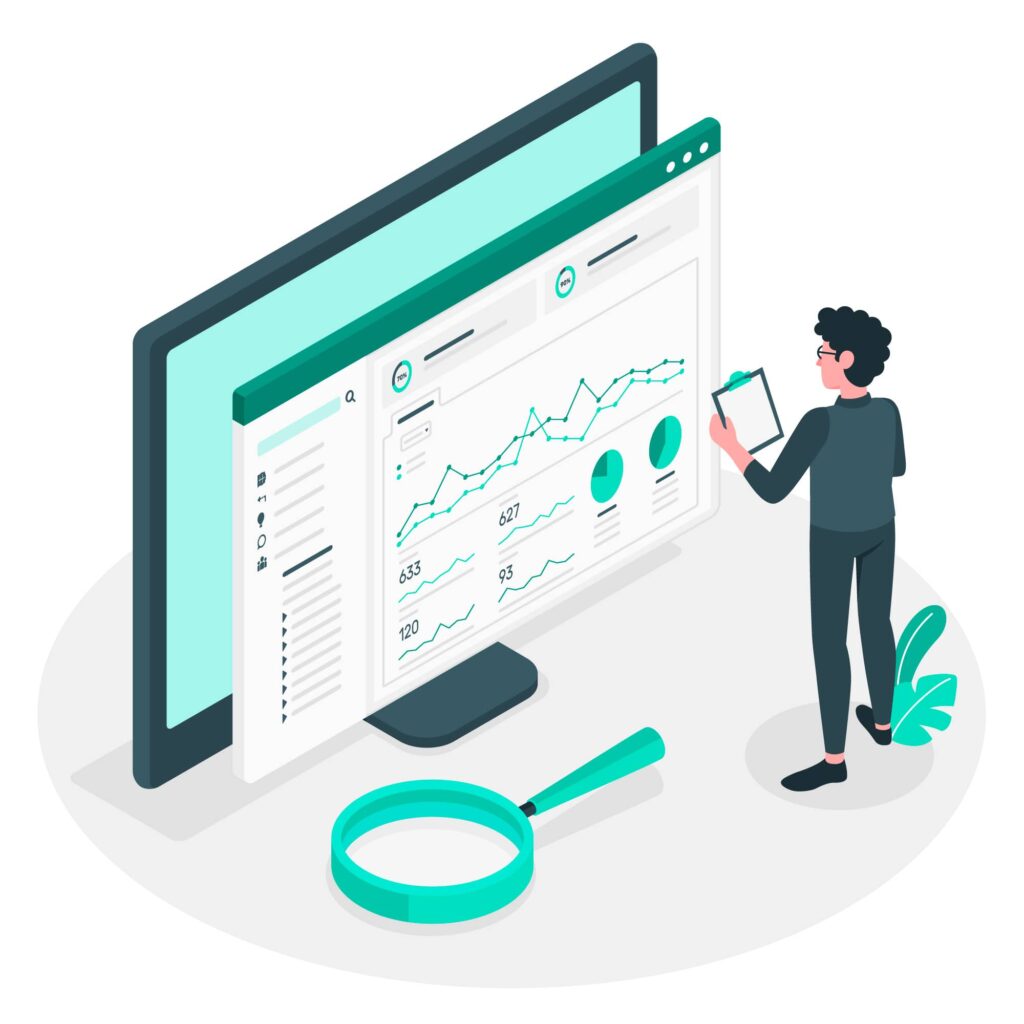Google Analytics Course In Jaipur
IPSI helps you learn about Google’s measurement tools so that you can grow your business through intelligent data collection and analysis. Analyzing user behavior and doing data analysis are essential elements of any successful advertising approach in the digital age of today. This is where Google Analytics, an effective instrument that offers priceless insights into user behavior, website traffic, and conversion metrics, comes into play. We’ll delve into Google Analytics fundamentals in this guide, and we’ll also look at how IPSI can use its power to create successful online advertising strategies.
What Is Google Analytics?
Google Analytics is a free tool that helps businesses understand their customers across devices and platforms. It collects data from websites and apps to create reports that provide insights into a business. Google Analytics can help organizations

Benefits Of Google Analytics
Google Analytics is an essential tool for SEO practitioners, offering numerous benefits that contribute to optimizing website performance and enhancing online visibility:
• Track Online Traffic: Google Analytics, you can track all sources of web traffic. Understanding where your website traffic is coming from is critical to your business online. Installing Google Analytics as soon as you create a new website is essential to start collecting traffic data. Identifying the different traffic sources, why, and how much. traffic your website receives, so you can monitor the benefits of your strategies. The cornerstone of a great online growth strategy is how people find your website. Seeing the rapid growth of traffic based on sources allows you to make informed decisions. on how to grow your business online. Is your website driving traffic from social media to Google? ‘in more traffic than through search? Identifying the differences will help you understand which channels are most profitable for you. Improving your traffic generation methods starts with defining the best traffic channels. Google Analytics measures and separates web traffic into channels that determine its primary source.
• Offline to Online Tracking: Google Analytics, businesses can now monitor initiatives that transition from offline to online. Companies want to be aware of how successfully their offline marketing initiatives translate into websites or online stores.
Google Campaign URL Builder allows you to generate unique campaign URLs and configure them with key parameters that will facilitate future tracking in GA.
In order to understand how your website visitors from offline campaigns behave, what actions they do, and how it all compares to an online ad campaign, it is imperative that you attempt to track these offline efforts.
We are able to track offline activity using GA in addition to tracking traffic from redirected domains. Make sure the offline marketing are the only intent of the redirected sites.
For offline advertising, you may further describe the data by combining individual landing pages with unique links.
Not to mention that more direct traffic is a means of acquisition
•Data Reports: Reports, dashboards, and alerts can all be customized using Google Analytics, and with a broad range of third-party support, you can tailor data analysis to the unique requirements of every business. Reports, dashboards, and alerts provide you a quick overview of whatever data you could want in any given circumstance.
To get you started, Google Analytics offers a large library of predefined reports and dashboards created by users. For instance, you may have a dashboard that displays SEO or website performance information instantly.
Easily generate and distribute reports to facilitate better informed decision-making using the custom reports option, which is a really useful tool. A report may also be configured to be sent straight to your email address when specific goals or milestones are reached by the website.
If the organization employs other business analytics tools, GA’s ability to export data straight into a spreadsheet (such as Google Sheets or Excel) or other third-party tool is advantageous.
• Google Analytics Enhances Web Pages:
Optimizing a website might be challenging if you don’t know what to improve. By evaluating the effectiveness of different parts in your design, you can use behavioral data using Google Analytics. By incorporating data into your workflow, you can create user experiences that are more optimal.
For instance, higher bounce rates from mobile visitors indicate that you should make improvements and raise your financial commitment to your mobile website.
Improved content flows with internal connecting structures that encourage website users to return may be designed with the aid of Google Analytics.
If one page performs better than others, you may get better search engine optimization by using its content and style throughout your whole website. The secret is to periodically test fresh iterations of
• Determine Your Target Audience:
A strong digital marketing plan involves reaching out to and providing services and content that appeal to your target audience; Google Analytics may assist you in identifying this audience. The content and services on your website may then be optimized with the help of the audience.
Reaching your target audience as effectively as possible has the advantage of increasing their participation in all areas. Reaching the full potential of a website requires an engaged target audience.
Google Analytics provides essential demographic data about the visitors and customers you currently have. Examine demographic information to create a mental portrait of your intended audience:
You may get your visitors’ demographic information in Google Analytics:.
- Language
- Gender
- City
- Age
- Loction
To determine the optimal way and location to contact your audience, combine demographic data with information about the user’s system, browser, and device.
Using Google Analytics Interests, you may segment your clients and visitors according to their interests. Interests can be categorized as in-market (users who are likely to purchase items in the interest category), affinity (interest categories best utilized to target a particular audience), or other (users whose interests do not align with the two previously mentioned groups).
Why Choose IPSI?

So if you want to improve your Analysis skills then join ipsi Google Analytics Course In Jaipur – Join ipsi today and learn Google Analytics with free website development from the Google Analytics Course In Jaipur
Apply For Demo Class
